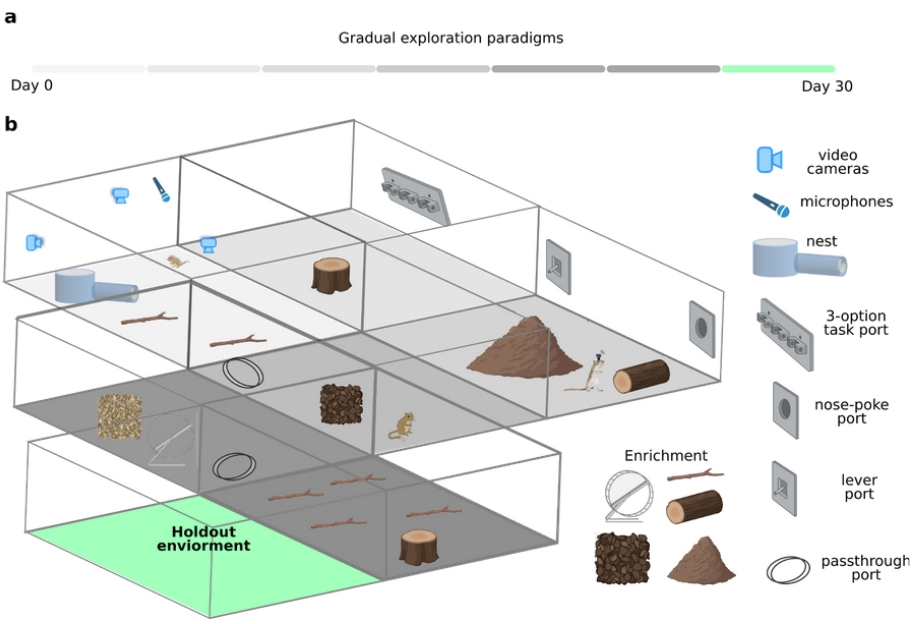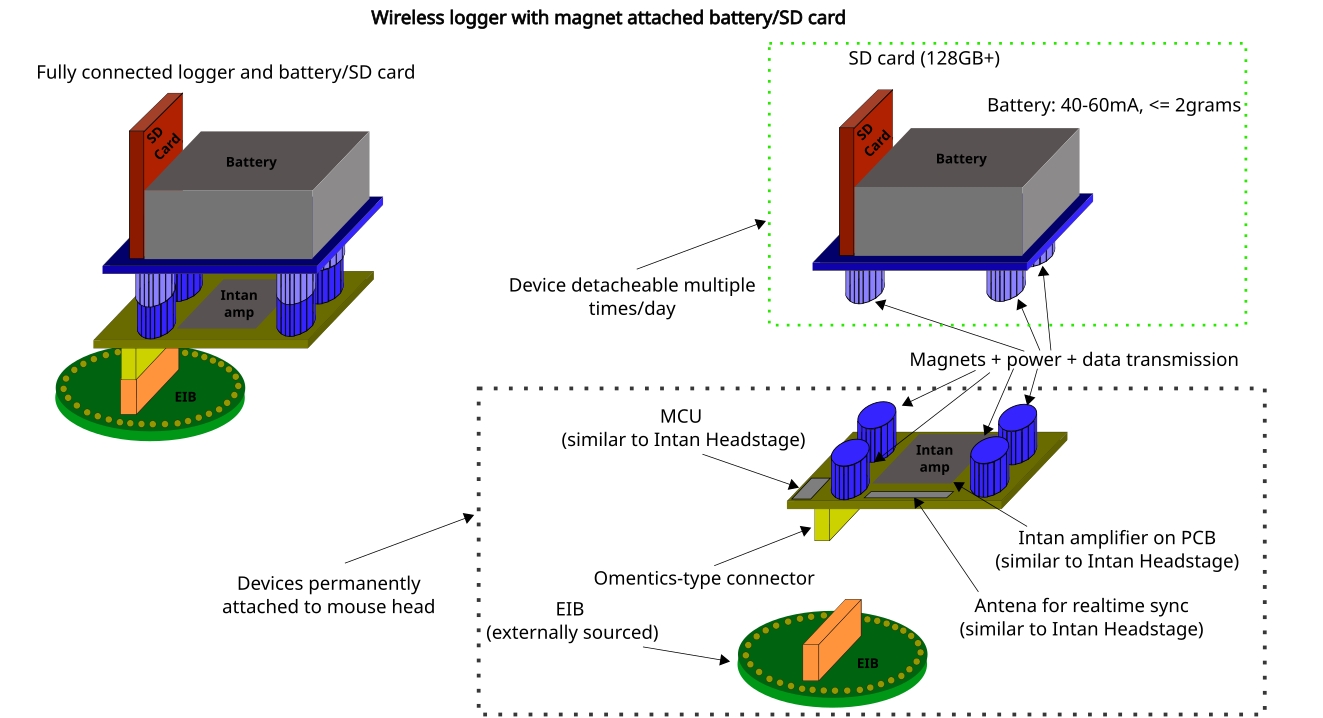Understanding the neural underpinnings of voluntary or self-initiated actions is crucial for advancing psychological and behavioral sciences and for understanding neurological diseases. Progress in neuroethology necessitates improvements in neural recording systems, enrichment paradigms, and data science methods. One significant challenge is the continuous recording of biometric or neural data from model animals, such as rodents, over extended periods. Current tethered neural headstages require commutators or periodic manual disentanglement, and available wireless data loggers are limited to a few hours of recording, necessitating constant human assistance.
We propose a research framework and platform for automating neural and behavior recordings in dynamic open-field paradigms to facilitate the collection of large-scale datasets required for modern machine learning methods. Our proposal outlines three critical advancements: the personalization of low-cost wireless neural loggers, automation of large-scale neuro-behavioral data collection, and the use of sequentially accessible arenas.
For low-cost wireless loggers, we propose a blueprint for custom headstages using standard microamplifiers, such as those from Intantech and IMEC. Our blueprint includes a printed circuit board (PCB) design that can be easily modified and sent to an array of existing low-cost PCB printing companies. The design integrates optional devices, including microphones, 3-axis accelerometers, Wi-Fi capabilities, and memory card and battery pack integration.
For automating data collection, we present a paradigm where self-head-fixing rodents can facilitate the automated removal, recharging, and replacement of neural loggers. This paradigm relies on mechatronics approaches and low-cost robotic arms that have sub-millimeter spatial resolution and high-sensitivity to handle neural loggers while avoiding damage or miss-insertions.
Lastly, we propose multi-chamber open-field arenas (MOFA) designed to provide stochastic-causal enrichment – creating learning paradigms where rodents can learn a variety of stimulus priors as well as causal effects of their actions. The arenas include randomized sensory cues to measure psychometrics related to perception, motivation, and decision-making. The MOFA setup involves gradual exploration paradigms over several days, allowing mice to progressively explore different areas. This approach enables the evaluation of computational models' generalization based on specific sections of the environment, rather than traditional data hold-out methods.
Our blueprint aims to enhance and accelerate the study of neural dynamics and behaviors, generating large-scale datasets for machine learning and traditional research.


